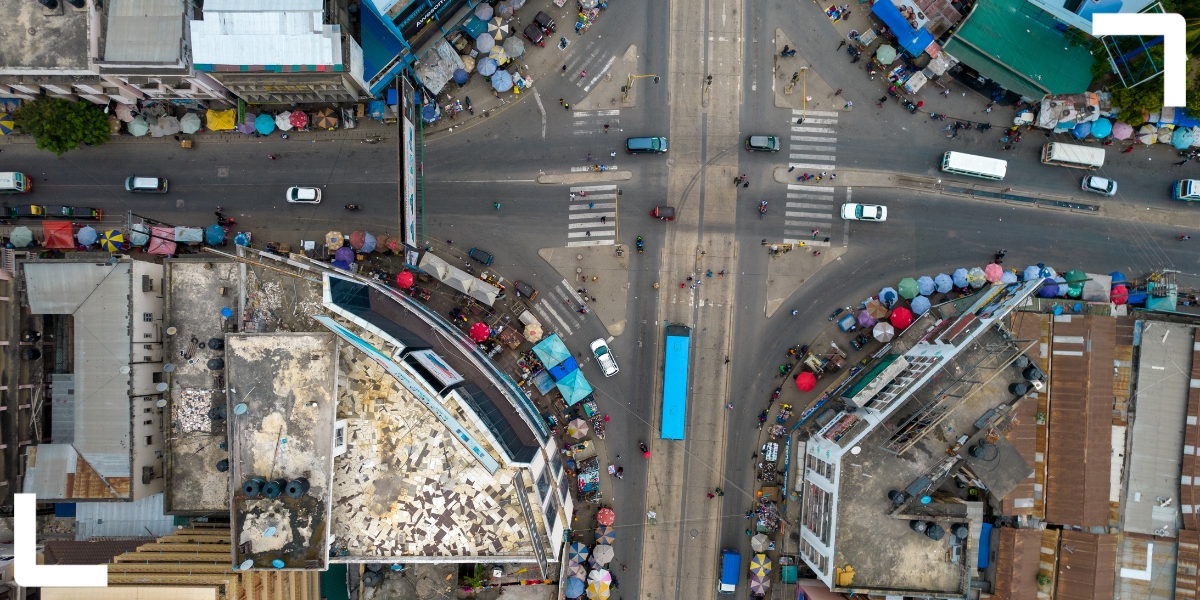Dar es Salaam is Tanzania’s socioeconomic and political powerhouse. But it faces numerous challenges, as everyday politics and historical legacies have determined its urban development, hindering delivery of basic services and safe and affordable housing, and giving rise to a proliferation of informal settlements.
A new report by Wilbard Jackson Kombe and Florence Muheirwe examines these challenges through several thematic lenses.
Drawing on studies examining the city systems, political settlement and domains of housing and informal settlements in Dar es Salaam, the authors explore how these have collectively shaped the city’s governance structure and overall urban development trajectory. Their analysis identifies Dar’s pressing issues – and the challenges likely to be encountered in efforts to solve them equitably and sustainably – and proposes interventions to address them.
Push and pull of political interests
Political interests and economic policies pursued by the regime in power play a critical role in Dar’s development, which is often determined by the push and pull of different political interest groups. Political elites mostly support urban development activities that align with their own interests, and so far have not faced confrontation from marginalised groups. But increases in population size, socioeconomic and spatial inequalities, and youth unemployment may change this situation, since elites remain a small and only slowly growing social group of actors in Dar es Salaam.
Although Dar’s formal private sector has grown rapidly, inflation, high levels of inequality and poverty have led to a growing number of consolidated informal settlements lacking basic services. Unemployment is high in these areas, with limited income-generation opportunities for youth and women in particular. Climate change effects also tend to be worse in overcrowded, poorly serviced, inaccessible and flood-prone areas.
Valuing and supporting informality
The prominence of informality in Dar es Salaam highlights deficiencies in urban planning, with informal service providers stepping in to fill the gaps left by formal sector ineffectiveness across city systems. While unregulated and fragmented, informality is also a tool for politicians and residents alike – with the latter having the potential to hold politicians accountable by demanding better services.
Among urban low-income earners, tolerance of informality as a key component of urban development in the city is crucial. The authors argue that without it, housing and livelihood conditions for low-income urban residents would be far worse, and identify ways in which informality has been pivotal in improving living conditions for the city’s marginalised residents. Attempts to mobilise street vendors in Kariakoo, for example, could provide lessons on improving the informal sector – including for wastepickers and motorcycle riders – with adequate sensitisation to ensure official actors understand their needs and recognise their contributions to the local economy.
Microcredit initiatives supporting low-income housing and livelihood/economic activities have also made a difference in the lives of many in the city. Yet there is a need to engage more decisively with key actors to explore barriers and opportunities to scaling up and mobilise popular support across critical city and national elites.
In the informal settlements domain, a key challenge identified is how to improve the quality of settlements with the participation of communities. Access to affordable, buildable land for housing – especially for low-income households – could be improved by training local leaders in basic land use planning and management skills. This would empower them to take responsibility for monitoring and controlling land development according to the plans co-produced with local communities.
Reform coalitions and power struggles
Reform coalitions to address Dar’s critical problems, such as poor basic services and a lack of affordable housing for low-income residents, face the daunting challenge of playing off conflicting policy and power positions. For city elites (including the private real estate and financial institutions) to be motivated to establish reform coalitions to improve conditions for informal settlements and enterprises, informality would have to be seen as an untapped political and/or economic opportunity.
The report argues that, given the nature and role that political and economic power configurations play in the development trajectory of Dar es Salaam, elites wishing for continued economic and political stability should support coalitions with marginalised residents.
Header photo credit: STORYTELLER / Canva Pro. Aerial view of Dar es Salaam, Tanzania.
The African Cities blog is licensed under Creative Commons Attribution-NonCommercial-NoDerivatives 4.0 International (CC BY-NC-ND 4.0), which means you are welcome to repost this content as long as you provide full credit and a link to this original post.


